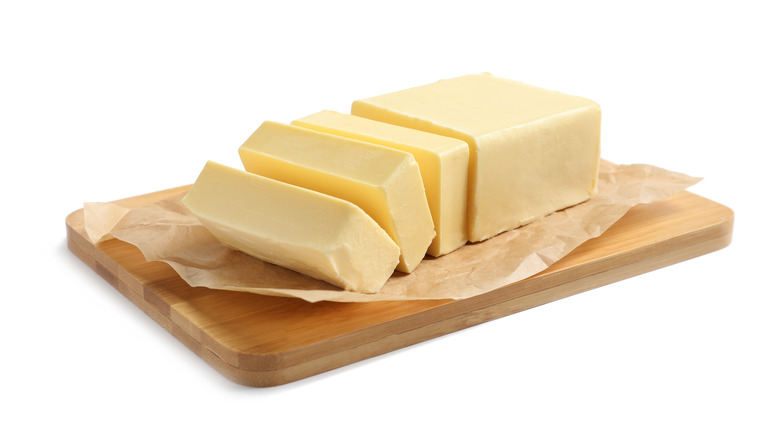Here's How To Stop Ruining Your Hard Cheeses
It can be a major disappointment to invest in a fancy and delicious wedge of manchego, only to open your fridge a short while later and find that your cheesy treat has been compromised by the elements. That's a sign that it's time to ditch that plastic wrap or parchment paper once and for all. Cheese Grotto explains that the benefit of dense, low-moisture cheeses is that they have a longer shelf life because they are able to withstand more environmental variables, than their softer counterparts. However, regardless of moisture content, even a hardier cheese is subject to growing mold if it stays in direct contact with plastic for long periods of time, due to the moisture that inevitably gets trapped against the surface.
On the other end of the spectrum, hard cheeses are also prone to cracking and crumbling when not exposed to proper humidity. Not to worry, though. With a little loving care, you can stretch out the life of your favorite cheese down to the very last slice or shred. When appropriately stored, Cheese Grotto says that a hard cheese can last from many weeks to a few months.
Preserve your hard cheese with butter
Wonder How To suggests a truly old-school method to keep your cheese fresh — butter. Rubbing a thin layer of the condiment across the surface of your favorite Pecorino Romano helps minimize drying, and the high fat content blocks moisture to inhibit mold from growing on the surface. Alternately, the website says that coating cheese with olive oil fights against deterioration in a similar fashion. If mold does begin to proliferate it will only attach itself to the oil, allowing it to be easily wiped from the cheese exterior. Lifehacker reports that wrapping cheese with a paper towel dampened in a bit of vinegar will yield the same positive results, and promises that it won't taste pickled afterwards.
It might cross your mind to try the paper your local cheesemonger uses, and that is also a viable possibility. Unlike regular parchment or wax paper, cheese paper is constructed to absorb condensation and help maintain original humidity levels (via Chicago Tribune). There are a few drawbacks to this method, however. Cheese Grotto cautions that the cheese must be wrapped extra-tightly to expel all surrounding air in order to work well. Additionally, since these paper sheets are disposable, they're expensive and not environmentally friendly. In terms of ease and cost-effectiveness, an old reliable seems to be the ideal choice. Who knew that just a stick of butter could keep your hard cheeses so happy?

